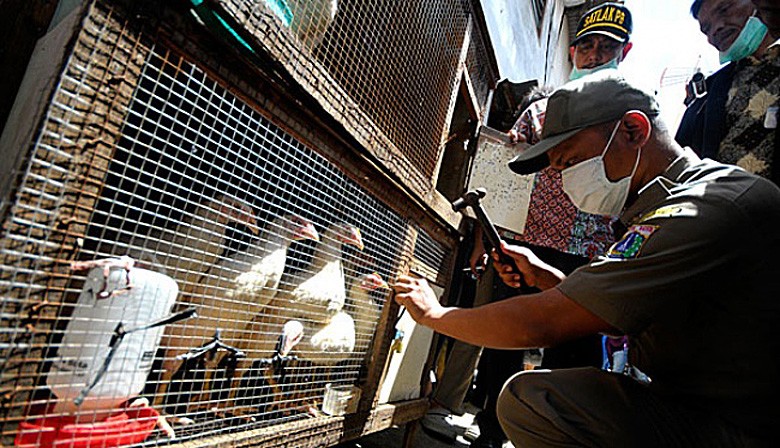Popular Reads
Top Results
Can't find what you're looking for?
View all search resultsPopular Reads
Top Results
Can't find what you're looking for?
View all search resultsBird flu rates rise again in Indonesia
Change text size
Gift Premium Articles
to Anyone
I
ndonesia has detected a sharp rise in bird flu cases in July since the country’s last report of an unexpected climb earlier this year, bringing the total number of the cases so far in 2016 to 188.
"The number of bird flu cases has risen in seven consecutive months since January, with the highest number of cases recorded in April, which is quite alarming. It subsequently fell from May to June, only to rise again this month," Agriculture Ministry official Muhammad Azhar said on Friday.
He made the comments when explaining the results of the government's monitoring of bird flu trend in 2016 to the audience at a poultry health and production seminar in Jakarta.
Azhar said as many as 92,014 poultry had died as a result of the bird flu virus in the last seven months. Most of them were ducks and layer poultry, which made up almost 60 percent of the total number. The remainder were quails, free-range village chicken (or ayam kampung) and broilers, he added.
Data show that the three provinces with the highest number of the cases are West Java with 65 in total, Lampung with 28 and South Sulawesi with 23 cases.
Azhar said the highest number of poultry deaths nationwide was recorded in March with 48,066 deaths, followed by 15,581 in February.
The following months saw vast improvements, with the number of poultry deaths declining to 9,860 in April and to 558 in June. However, the rates rose by more than tenfold in July, with 6,550 cases recorded, Azhar said.
Azhar noted that the rainy season, which occurred throughout the first few months of the year, might have contributed to the death of the birds, which might have been vulnerable given poor farm conditions and sanitation.
He further said that monitoring by the ministry’s officials had revealed that many farms failed to implement biosecurity measures, a framework in quality maintenance of farm and poultry products developed in collaboration with the United Nation's Food and Agriculture Organization (FAO) more than a decade ago, after the virus was first detected in Indonesia. (ebf)










